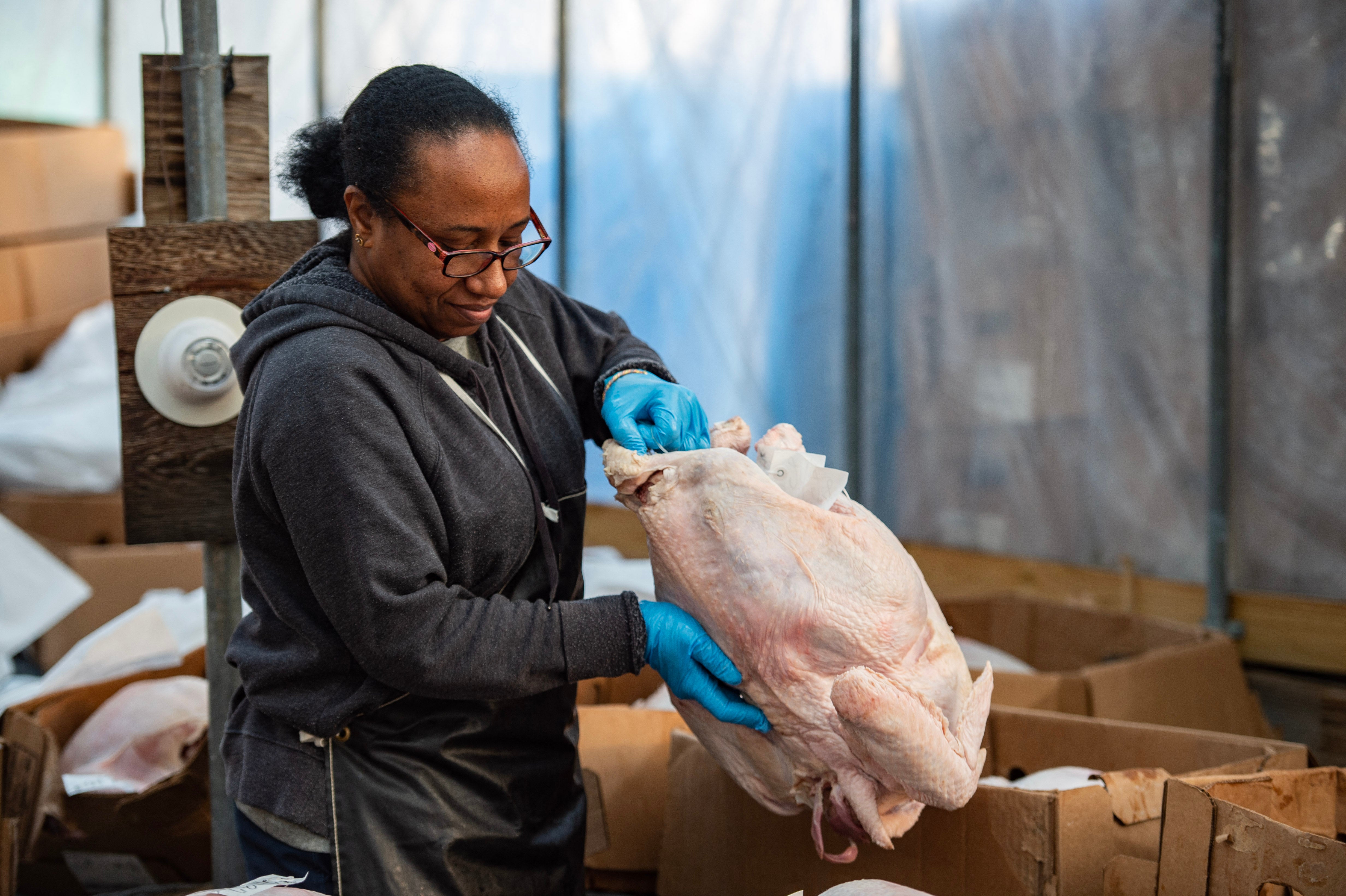Your Thanksgiving turkey may get even more expensive this year.
America’s turkey flock has shrunk to its smallest size in 40 years amid a resurgence of bird flu, the American Farm Bureau Federation reports. Wholesale turkey prices are bout 40 percent higher than in fall 2024.
Prices are expected to increase to $1.32 per pound, up 38 cents per pound over last year, the bureau said.
“Our turkey guys are getting hit pretty hard this fall,” Bernt Nelson, an economist at the farm bureau, told The New York Times.
The virus, known as H5N1, is ripping through farms across the U.S., with outbreaks affecting hundreds of thousands of birds in Iowa, South Dakota, Minnesota, Indiana, Michigan, Wisconsin, Utah and Washington.

Bird flu has affected 6.46 million birds in the last 30 days including nearly 514,000 turkeys, according to data from the Department of Agriculture.
Bird flu has affected more than 180 million farmed and wild birds since 2022. It’s also spilled over into herds of dairy cows across 18 states.
Though the virus has not yet shown the ability to spread between humans, it has sickened at least 70 people and killed one unidentified Louisiana senior who came in contact with wild birds and a backyard flock.
The spread of bird flu may also mean that egg prices will be impacted again, according to experts. “The only honest answer to that is we will have to see,” Iowa Agriculture Secretary Mike Naig told NBC News.
Egg prices rocketed from late 2024 into early 2025 as bird flu cases increased, reaching an all-time high of $8.17 for a dozen this past March. In the last month, they’ve increased by about a dollar, rising $0.10 to $1.16 per dozen white large shell eggs, according to the latest Egg Markets Overview.
The bird flu outbreak comes amid the ongoing government shutdown that has left agencies with skeleton crews and affected data collection, Dr. Amy Swinford, director of the Texas A&M Veterinary Medical Diagnostic Laboratory, told The Times.
“Because of the government shutdown, I know less than I would normally know,” she said.
Cases had eased off this summer and farmers felt some relief. But bird flu spreads more easily in the fall when birds make their seasonal migrations.
That appears to be reflected in increased outbreaks. This is the fourth fall where bird flu infections have risen and experts say this seasonal pattern appears to be a new standard.

“Before, it was more theoretical; ‘Let’s try to keep that out of our flocks.’ And now, even with these increased biosecurity measures, there still are commercial flocks that are vulnerable,” Nick Levendoski, president of the Wisconsin Poultry and Egg Industries Association, told Wisconsin Public Radio.
For turkey farmers, this “new normal” has meant 3 percent fewer turkeys were raised this year over 2024, the lowest estimate since the 1980s.
However, turkey remains the most popular protein on Thanksgiving tables across the country. Some 46 million turkeys are eaten over Thanksgiving in the U.S., according to the federation.
Leslee Oden, the American Farm Bureau Federation’s president and CEO, told Axios that turkey growers and processors have been working to address the continuing threat before the November 27 holiday.
“We feel confident in the frozen turkey supply, and while there’s been an uptick in bird flu cases, we do not see those impacting overall supply right now,” he said.



)

